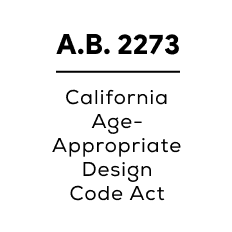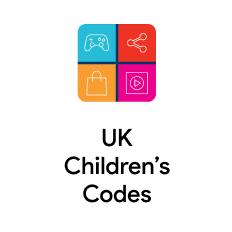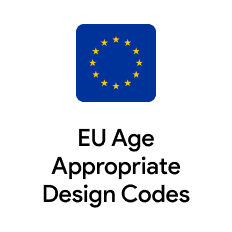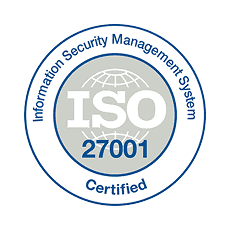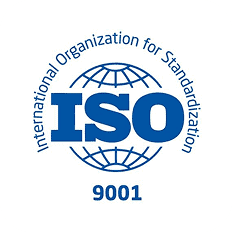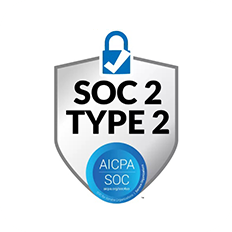Introduction
PrivateID is built for seamless, interoperable identity authentication with privacy at its core. Its edge-based architecture and patented tokenization ensure biometric data never leaves the device, enabling scalable, compliant, and frictionless authentication across industries.
BioID provides Biometrics-as-a-Service (BioID Web Service, “BWS”)—a cloud (Azure)-hosted face biometrics platform offering facial recognition and liveness detection via web/gRPC APIs. BWS follows a match-on-server model, meaning images/biometric samples are uploaded to BioID/BWS (or an on-prem instance) for processing.
1. Architecture
PrivateID: Performs 1:1 biometric matching directly at the device edge. Biometric data and PII remain securely on-device.
BioID: Cloud-centric, match-on-server architecture; images/samples are transmitted to BWS for verification and identification. Can also be deployed on-prem (Windows service/Kubernetes), where templates and logs are stored in connected storage.
2. Privacy & Tokenization
PrivateID: Uses patented Homomorphic Tokenization; no biometric images/templates are transmitted or stored; IEEE 2410 compliant.
BioID: Processes biometric images/samples server-side (cloud or on-prem). BioID markets “complete anonymity” claims for BWS integration, but operationally images/samples are uploaded and biometric templates are stored/managed by the service (or customer’s on-prem store). Compliance controls remain the customer’s responsibility.
3. 1:1 vs 1:N Matching
PrivateID:
•1:1: On-device; no images/biometrics leave the device.
•1:N: Only anonymized tokens transmitted; constant-time lookups.
BioID: Supports both 1:1 (verify) and 1:N (identify) through APIs, which require uploading samples to the server and comparing them with stored templates/galleries.
4. Multi-Modal Biometrics
PrivateID: Facial, voice, palm, fingerprint; can combine with passkeys and risk signals.
BioID: Focuses on face biometrics with liveness detection; documentation and product pages reference face and periocular recognition under BWS.
5. Liveness Detection (PAD)
PrivateID: On-device anti-spoofing (photos, masks, screens, deepfakes) without transmitting biometric data.
BioID: Server-side liveness detection (software-based) evaluated against ISO/IEC 30107-3 and FIDO Biometric Certification Requirements by TÜVIT. Recent public reports highlight strong results, including 99.7% overall PAD performance and a separate Level-C test detecting all attacks.
6. Scalability & Efficiency
PrivateID: Constant-time performance and tiny token payloads (~1 KB) reduce bandwidth and compute.
BioID: Scales elastically on Azure; performance and costs scale with server capacity, storage, and gallery size inherent to match-on-server systems.
7. Accuracy
PrivateID: 99.999% accuracy across unlimited gallery sizes (with privacy-preserving tokenization).
BioID: Publishes independent PAD test results (e.g., 99.7% in TÜVIT evaluation; “all attacks detected” claim in a Level-C PAD test). Recognition accuracy at massive gallery scale is not publicly benchmarked via NIST FRVT for face matching.
8. Compliance & Security
PrivateID: On-device processing (1:1) and homomorphic tokenization (1:N) inherently align with GDPR/CCPA/HIPAA/BIPA; IEEE 2410 certified.
BioID: EU-based vendor; ISO/IEC 30107-3 PAD evaluations and FIDO-aligned testing are public. However, because samples/templates are processed server-side, customers must handle lawful basis, DPIAs, retention, and data-subject obligations for biometric data unless they fully isolate via on-prem deployments.
9. Deployment & Integration
PrivateID: Lightweight SDK/API; runs on general-purpose hardware; no cloud dependency for 1:1.
BioID: Offers REST/gRPC APIs, SDK samples, and a developer playground. Default is cloud/SaaS, with on-prem options (Windows service/K8s) for regulated workloads.
10. Ethics & Trust
PrivateID: Built for user-consented, privacy-preserving authentication.
BioID: Long-standing EU biometrics vendor emphasizing PAD and KYC/identity verification use cases; still relies on server-side image processing unless deployed on-prem.
11. Cost & Total Cost of Ownership (TCO)
PrivateID: Edge and token-based design lowers compute, bandwidth, and storage costs.
BioID: SaaS/server-side matching implies pay-as-you-go style consumption of compute/storage and bandwidth; costs will correlate with traffic volume and gallery size.
12. Latency & User Experience
PrivateID: ~100ms real-time authentication at any scale with constant-time token operations.
BioID: Network round-trips to the server and server-side matching/liveness introduce latency; on-prem deployments can reduce wide-area hops but still require server processing.
13. Deployment Flexibility
PrivateID: Fully edge-capable (1:1) and hybrid edge-to-server for 1:N with tokenization; cloud/on-prem/hybrid supported without lock-in.
BioID: Cloud-first on Azure, plus documented on-prem (Windows service/Kubernetes) variants where customers manage storage for templates and logs.
14. Ecosystem & Interoperability
PrivateID: Standards-based (IEEE 2410, FIDO2) and interoperable with IAM/MFA/Passkeys/RBA.
BioID: API-driven integration (REST, gRPC) and open samples (GitHub). ISO-aligned PAD; primary focus is integrating face + liveness into existing IDV/KYC/IAM stacks rather than passkey-native flows.
15. Bias & Fairness
PrivateID: Tokenization removes demographic identifiers, reducing bias risk.
BioID: Standard image-based face matching; vendor highlights PAD certifications but does not publish demographic bias-mitigation methods comparable to tokenization approaches. (No publicly cited FRVT fairness disclosures found.)
16. Business & Market Positioning
PrivateID: Designed for privacy-first enterprise/consumer authentication in regulated sectors.
BioID: Positions as Biometrics-as-a-Service for developers and enterprises needing face recognition + liveness for KYC/IDV and login use cases; strong focus on PAD certifications and flexible deployment (cloud or on-prem).
Summary
PrivateID performs 1:1 matching at the device edge and uses homomorphic tokenization for scalable 1:N searches—so biometric data never leaves the device for 1:1 and only anonymized tokens are transmitted for 1:N. This yields constant-time performance, multi-modal options, built-in compliance, and lower costs.
BioID offers a mature, cloud/server-side face biometrics platform (BWS) with strong, independently tested liveness detection (ISO/IEC 30107-3; TÜVIT). However, its match-on-server model means biometric samples/templates are processed and stored on servers (BioID cloud or customer on-prem), which introduces network latency, scaling-linked costs, and added compliance burden compared with a purely on-device/tokenized approach.









